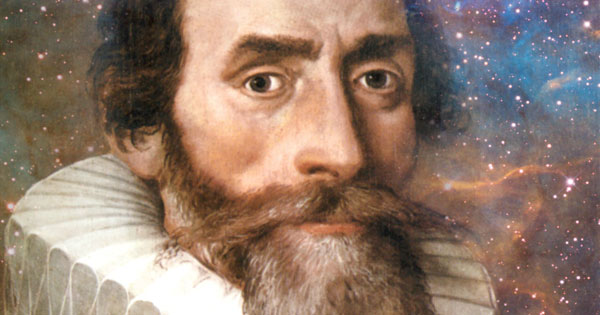One of the more noteworthy features of current commentary is generational disappointment. Failed potentials. Unkept promises. Peter Thiel is remarkable for combining two kinds of disappointment normally kept in separate quarters: disappointment with technological and scientific stagnation, and with the narrow victimology of the humanities.
By bringing these disappointments together, Thiel points us to a new sense of purpose for higher education, in which scientific progress and human advancement are an integrated ambition.
The two academic talks I’ve heard Peter Thiel give, one at an academic freedom conference at Stanford University in November 2022 and the other at
’s excellent conference on René Girard at Catholic University in November 2023, were both structured around Thiel’s central complaint: that scholars today are not asking big enough questions about the world, about good and evil, about the meaning of our existence and our nature as human beings. The questions we are asking have gotten small.
Thiel is not the first to lament a focus on small things – many critique that ‘micro’ is the new ‘macro’ in the humanities. He’s not completely right about how or when it happened, but he’s not wrong that it has happened and people have begun to notice. The glowing tributes to the late Helen Vendler and new pockets of high-impact interest in Harold Bloom make this point.
Why should it matter to Thiel and the tech world what kind of questions historians, classicists, literary scholars, and philosophers are asking? Because these are the fields that historically have asked the fundamental questions about who we are as human beings – including the human inventors of technology. And we are not doing our jobs.
Like a good academic, Thiel often gives the same talk or variations on the same talk over and over. You can see versions of his Stanford and Catholic U talks at the Oxford Union and in conversation with Tyler Cowen. You hear the same general themes – deep dissatisfaction with the way the world is going; a search for what went wrong and when; names of philosophers and religious figures who have grappled with similar concerns; observations about academia, safety, and the dampening of scientific animal spirits; and reflections on his own pessimism. The subject he returns to, again and again, is: why is the world a mess and what did academia have to do with it?
Thiel thinks big. Bigger than most scholars working today. The Catholic U and Cowen talks pondered the biblical concept of the katechon – that which impedes the end of the world, the Antichrist; the power that delays some ultimate apocalypse. He is quick and fluent with references to Carl Schmitt, René Girard, John Calvin – big thinkers whose canvas was human nature itself and how we tend to (or should) organize and govern ourselves to keep a temporary peace. This will be the topic of Part 2.
Here I focus on Thiel’s Stanford talk, “The End of the Future / Nihilism is Not Enough,” halfway through which I realized he may be the cure for the ‘crisis’ of the humanities we’ve been waiting for, if he’d push his point further and trade his pessimism for optimism.
The short form was that the talk was a lament about lies, fabrications, and the resulting pessimism where the world was once more optimistic.
The details are not as relevant as his state of mind. What did Thiel know on November 4, 2022, as he recalled his undergraduate activism at Stanford, as he reached back to his interventions in the Great Books canon wars with his critique of “anti-Western” texts such as I, Rigoberta Menchu (1983), pausing to mention the decades-old controversy over the 23-year old’s possible exaggerations in this testimonial and how the attention brought by his critique may have led to her Nobel Prize? What did he know as he lamented that the sciences had not lived up to their promises, and that claims that they would deliver us a better world were largely ‘propaganda.’
It was unclear, listening live, who he was blaming for what he sees as a broad cultural move toward dystopian thinking—a world that focuses too much on the existential terrors of new technologies rather than celebrating the future. He lamented the zeitgeist of science fiction, of the environmental movement, and even of parts of the artificial intelligence community, that progress is going to make things devastatingly worse, not better.
At the time, I thought Thiel was making a general point about tech propaganda—particularly in the realm of computer science—that the world-improving progress promised by visionary futurists never arrived. Indeed there have been breakthroughs in string theory, cancer treatments, not to mention super-thin iPhones and the internet, but the promised underwater cities and flying cars have not arrived. “It doesn’t quite work on the level of taking our civilization to the next level,” Thiel lamented.
“[T]here is something about science and technology that has taken a very dystopian, very destructive turn in the 20th century,” Thiel observed, wondering why the 18th and 19th century rational enlightenment view of “making everything better in every way, all the time” came to a halt. Perhaps this is to be expected, given last century’s world wars and very real risks of thermonuclear war.
Thiel did not explicitly tie this point back to Menchú and the Great Books debates, but he half hinted that the humanities were a little bit at fault. Still, he said: “I think that it’s better for undergraduates to major in the humanities rather than the sciences... computer sciences, aside... Because in the humanities you at least know you’re not going to get a job, you’ll be unemployable, whereas in the sciences you have people who are so deluded as to believe that we’ll be taken care of by the natural goodness of the universe.”
I have little doubt now, reading this line, Thiel knew what current events were about to make clear, that technologists at Stanford and nearby Silicon Valley are as much purveyors of fiction as the humanities are. If the humanities, in his view, were overselling the wrong things, the technology optimists had also been overselling delusions of world-changing prosperity.
That is, Thiel surely knew that within days the fallout from science and technology exaggerations and propaganda would be front-page news – the dramatic collapse of the cryptocurrency exchange FTX, run by Sam Bankman-Fried, the son of two Stanford professors, and the sentencing of onetime Stanford undergraduate Elizabeth Holmes, former CEO of Theranos. (It’s unclear if he knew about the claims of academic misconduct against Stanford’s president, revealed at the end of November 2022 in the student newspaper.)
Ideally, for Thiel, a university like Stanford ought to be on the side of truth-telling, risk-taking, science heroes. But decay had already taken root when Thiel was a student in the late 1980s, and fear of progress has been aided and abetted by a conspiracy of innovation propaganda that insists things are getting better when they clearly aren’t. He noted how Stanford economist Michael Boskin in 1994 built into national policy that new, more expensive consumer goods give us more pleasure, so the economy must be healthy, not inflationary. But at some level people suspected that wafer-thin cell phones weren’t really raising everyone’s standard of living if grandma had to eat cat food, he quipped.
What were the wrong things humanities had been selling? When I finally read “The Diversity Myth” I was struck by how much Thiel and his co-author missed the opportunity to see and celebrate the influence Western culture had on the writings they critiqued. Rigoberta Menchú’s narrative of hard work and striving should actually be celebrated in Silicon Valley. The first six chapters are all about strong family values, the resilience of her parents, the centrality of tradition, and the importance of hard work and getting ahead. Young Rigoberta describes setting goals for herself, setting tasks, becoming adept at her labors. What is not to like here? Chief Seattle, another figure whose writings were maligned by Thiel, likewise lived a notable life as a leader, was baptized into the Roman Catholic church in 1857, was famously devout, and might have enjoyed talking with Thiel about the katechon.
(I am reminded of the many years I spent teaching The Narrative of the Life of Frederick Douglass in the Great Books course at Johns Hopkins. Douglass’s narrative offers a powerful example of overcoming adversity and striving for freedom and education – themes that resonate deeply with American values.)
And so I found myself pondering Thiel’s Nihilism talk, as Holmes was sentenced to jail for her fantasy of a magic blood analysis machine and Bankman-Fried was unmasked as a fabulist creator of a magic money making machine. An essential part of the fantasy of both was that they were selling the idea of “doing good” not just making billions. “It’s like yeah, humanities we all know, are ridiculous. But if STEM is ridiculous you know there is just nothing, nothing left at all.”
This was Thiel’s startling conclusion, laying the widespread pessimism about progress at the feet of both humanities and the sciences, with a greater indictment of the sciences.
Is the answer now for humanities to be as optimistic as scientists, to marvel at how figures like Menchú and Douglass offer the possibility of heroic overcoming, of rising above? Thiel could be the prophet of optimism, in his desire for the humanities to Be Big Again, to see the utility of transforming victim stories into celebrations. To see Satan as less dangerous than safety.
(As an aside, rise of victim narratives should not be laid wholly at the feet of left-leaning universities, of course. In the criminal justice system, ‘victim impact statements,’ pushed by the right, not the left, to give victims of crime a voice in sentencing, were made law in the 1990s. Justice David Souter, single and without offspring, lamented that victim impact statements created an uneven playing field. There is no redemption in victim impact statements; the point is that the victim hasn’t overcome the victimization.)
In the Platonic ideal of a university devoted to classical liberalism and academic freedom, there would be conversations about hedonic adjustments, the singularity, and victim impact statements as a matter of conceits of technologists, economists, and humanists. There would be conversation about when an overly optimistic pitch deck becomes fraud.
If, to return to the top, Thiel points us to a new sense of purpose for higher education, in which scientific progress and human advancement are an integrated ambition, the question is what is preventing it from happening already?
.png)





